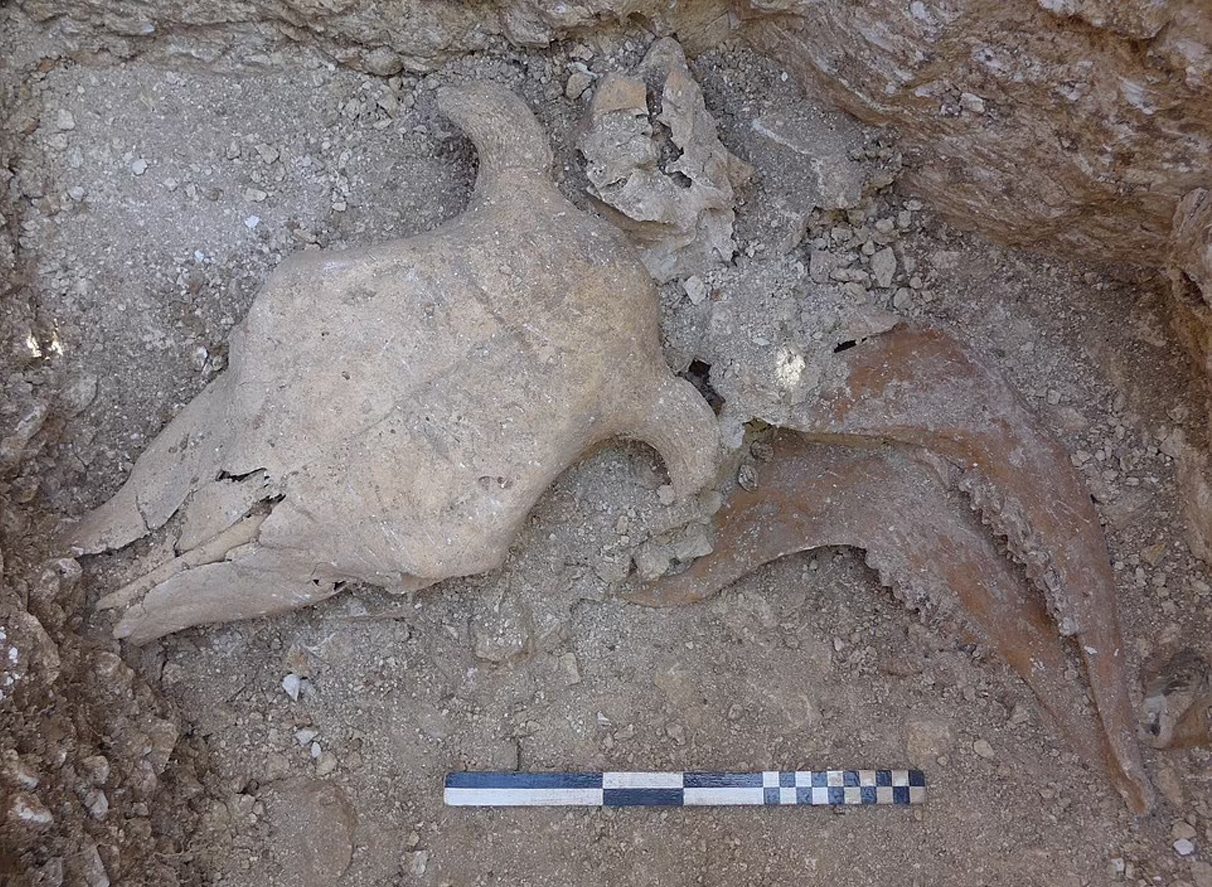Archaeologists from Bournemouth University have found an Iron Age settlement with evidence of animal sacrifices in Dorset, England.
The settlement, previously unearthed in 2021, consists of Iron Age round houses and storage pits from around 100 BC before the arrival of the Romans in Britain.
“We know a lot about life in Britain during and after the Roman invasion because so much has been written down,” said Dr Russell from Bournemouth University. “But we do not have anything written about life before, the answers to how they lived come solely from what we find in the ground.”
During this season’s excavations, the researchers found oval shaped storage pits that contained human remains, joints of meat, drinking vessels and animal body parts.
Some of the oval pits contained cow skulls, vertebrae and separated jaw bones, with some peculiar placements of animal parts from different species placed onto and together with other animals, for example, a cow’s head on the body of a sheep.
Archaeologists theorise that the pits were animal sacrifices to their gods, giving new insights into the ceremonial activity and religious beliefs of the inhabitants.
Dr Miles Russell from Bournemouth University said: “Sites across Dorset in the Late Iron Age are unique because the communities here buried their dead in defined cemeteries. Elsewhere in the country they would either be cremated or placed in rivers, but in Dorset it seems they did things rather differently.”
The human bones will be sent to Bournemouth University for further analysis before being reburied. The team plans to survey and scan the the area of East Dorset for further settlement activity that could reveal more secrets about life in pre-Roman Britain.
Header Image Credit : Bournemouth University





